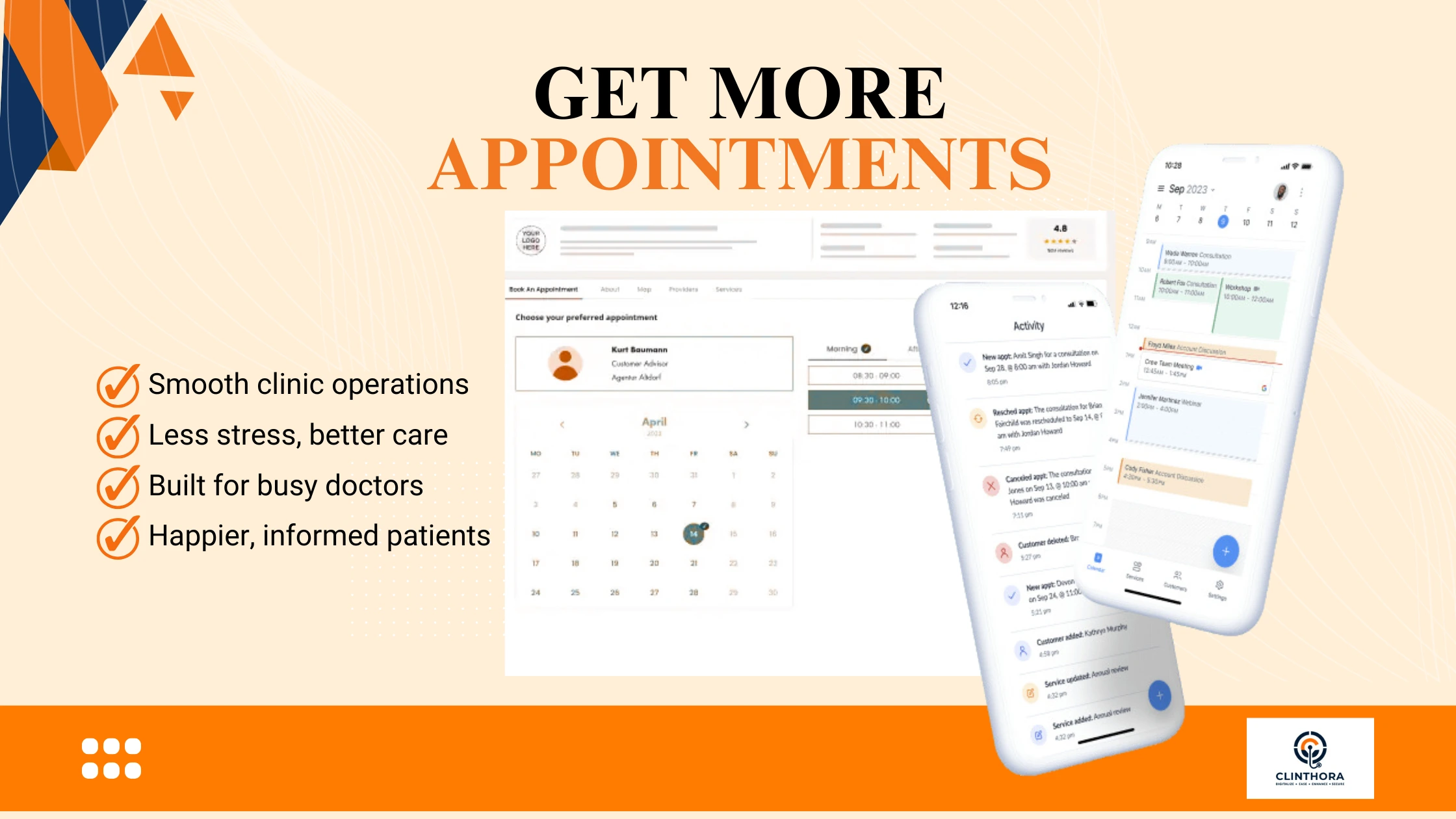
- By admin
- 23 June 2025
Introduction: Why Patients Wait Despite Scheduled Appointments
Why do we schedule a clinic visit and then end up waiting? My time equals the doctor's.
This is a widespread concern—and a reasonable one.
While patient expectations are being founded on rigid time slots, reality within the clinic is different. Each patient is unique, and each consultation is unique as well. Physicians are subject to unexpected circumstances, cases of emergency, and patients requiring more time than anticipated. No matter how hard they try, staying strictly on schedule is frequently impossible.
In this article, we’ll explore how doctors can manage their time better, reduce patient waiting time, and bring more structure into their practice using a queue management system for clinics like Clinthora.
How a Simple Queue Management System Keeps Doctors on Schedule
Your clinic functions more efficiently with a queue management system. It can automatically sort your patients into order, indicate how long each patient has to wait, and notify them if you are late. When this is clearly visible at the front desk or waiting room, it minimises patient frustration and reduces stress on your staff.
Clinthora makes it easier with its live queue dashboard that instantly updates your patients and team, so you can keep expectations in control without doing a thing.
Add Small Breaks Between Patients to Stay on Schedule
If you block 10 minutes per patient but some require 15 minutes, the entire day can be slowed down. By inserting a brief 3–5 minute buffer between appointments, you can catch up without hurrying. This minor adjustment allows time to complete notes, take a breath, or address emergencies.
Clinthora's intelligent scheduler allows you to dynamically adjust time blocks and notifies you if back-to-back appointments risk conflicts.
Have Patients Pre-Complete Forms Prior to Arrival
Quite regularly, appointments are delayed as patients are filling out forms or providing insurance information upon arrival. You can preempt this time-wasting by having them fill out such forms in advance online. That way, you're prepared when they arrive, and you can begin on time.
With Clinthora, patients get electronic forms and reminders prior to their appointment, allowing your doctors and staff to begin each session ready to go.
Book Appointment Time Based on Patient's Problem
Not all patients require the same length of time. A person in for a routine blood pressure checkup won't require as much time as a patient who has new symptoms. You can use a queue system to provide shorter or longer time slots depending on the visit reason. This keeps your day more evenly balanced.
Give Your Staff the Ability to Stay Current with Live Scheduling
Your front desk should always know if you’re running behind or free early. With a queue board or digital display, they can see your live schedule, update patients, and adjust upcoming appointments. This avoids confusion and helps your team work together smoothly.

Tell Patients When and Why Delays Happen
Patients do not mind waiting if they understand what is happening. You can send them reminder messages before the appointment and inform them if there is a delay. This makes them feel in control and less stressed out. You can use simple mechanisms like SMS or WhatsApp for notifications.
Utilise Video Consults for Quick Follow-Ups
Teleconsultation is a time saver for patients who require only brief advice or a refill on prescriptions. It reduces the number of people in your waiting room and provides you with more control. You can handle in-person and online patients simultaneously without stress.
Utilise Reports to Organise Your Day More Effectively
Good queue systems provide you with easy-to-read reports. You can tell when your clinic is busiest, which appointments are longest, or where delays frequently occur. This allows you to make minor adjustments that make your entire schedule better.
Let Admin Staff Manage the Queue, Not the Doctor
Doctors shouldn't need to clarify wait times or handle scheduling. Trained staff can handle the queue through the system. That way, you are able to keep your attention on your patients without being diverted by scheduling.
Less Stress for doctors Means Improved Patient Care
When you are late, it can be stressful and draining. Long lines of patients, weary patients, and consecutive appointments drain your attention and energy. A queue management system makes your day more structured. You do not feel so stressed, and patients receive better care.
Conclusion: A Smarter Way to Manage Time and Patients
It's not about treating patients; running a clinic is about efficiently managing time. A clinic queuing system assists you in doing so by structuring your day. It informs patients, updates your team, and provides you with room to deliver better care.
Clinthora's queue management system was designed for doctors. It automates scheduling, streamlines patient flow, and provides your staff with everything they need to get ahead of the day's workload.
When you have an organised day, everything becomes easier. Patients are happier, your team functions better, and you get home less exhausted. It's a small step with a big difference.

